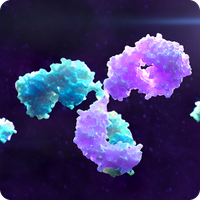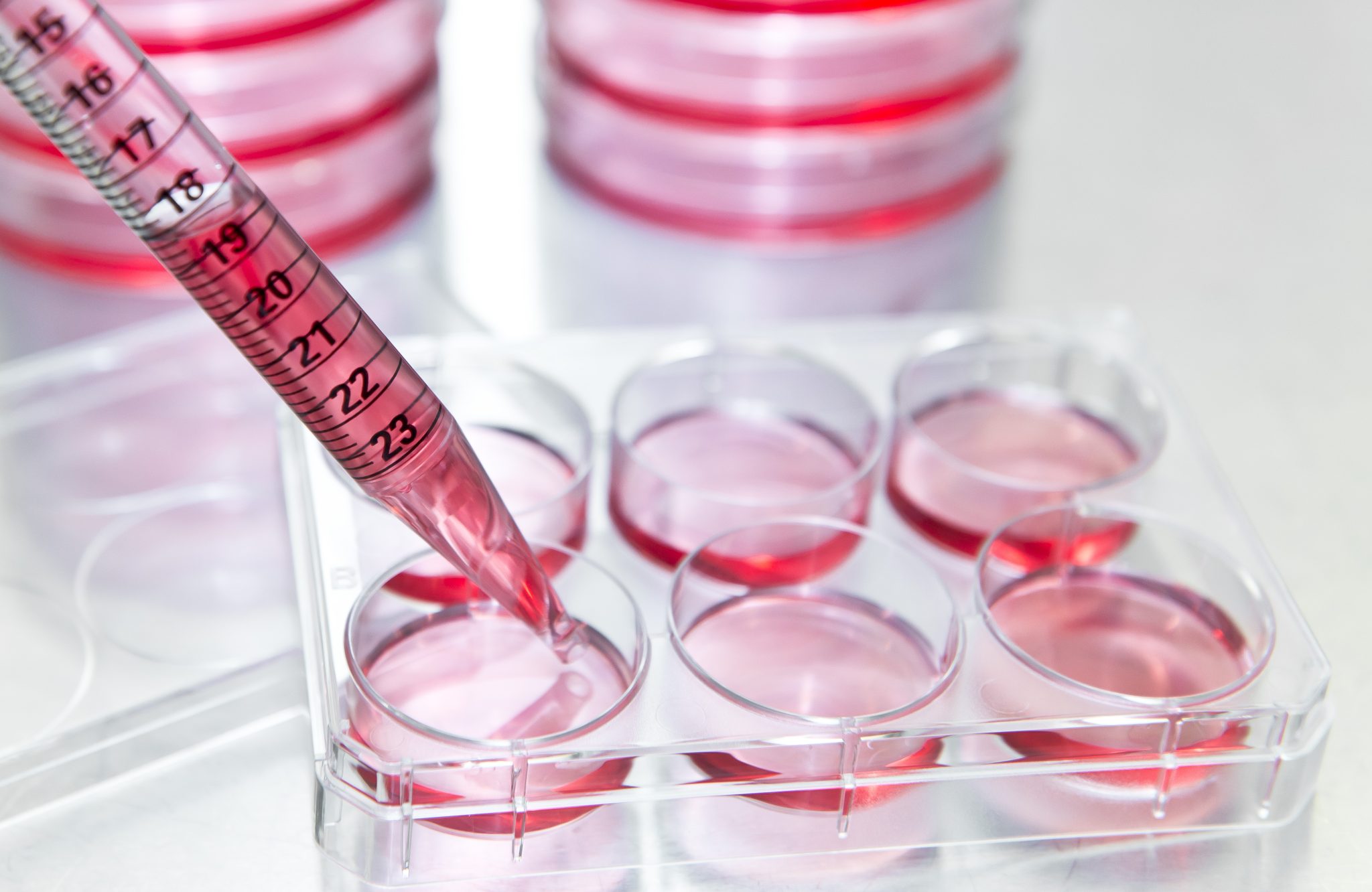Bispecific antibodies are recombinant molecules engineered to bind two different antigens or epitopes at the same time. Unlike single-target monoclonal antibodies, bispecifics can bring together two molecules, or even two cell types, to create unique biological interactions.
Researchers use bispecific antibodies to study:
- Immune-cell redirection
- Dual checkpoint modulation
- Tumor–immune crosstalk
- Cooperative or compensatory signaling
- Mechanisms of therapeutic intervention
In simple terms, bispecific antibodies allow scientists to interrogate biological systems in ways that single-specificity antibodies cannot.
Common Bispecific Antibody Formats
Bispecific antibodies are built in several architectural formats, each suited to different research goals. The most widely used designs include:
- Knob-in-Hole (KIH): Features engineered heavy chains that pair predictably to form a stable IgG-like structure. Provides one binding site per target and is commonly used in therapeutic modeling.
- Head & Tails: Combines a full IgG with an ScFv fused at the Fc tail, enabling a 2 + 2 binding configuration. Useful for mechanistic studies that require multivalent engagement.
- Tail & Head: Places the ScFv on the light chain rather than the Fc tail. Helpful for examining dual-receptor engagement or pathway cross-talk.
These configurations give researchers flexibility to align format choice with biological questions, expression needs, and desired functional activity.
Why Researchers Use Bispecific Antibodies
Dual-target designs support a range of preclinical and translational investigations, including:
- Analysis of cooperative or redundant signaling pathways
- Evaluation of dual checkpoint blockade
- Modeling T cell–mediated cytotoxicity in tumor studies
- Development of more predictive in vivo efficacy models
For early discovery through preclinical development, bispecific antibodies help clarify mechanism of action and target interplay before therapeutic candidates move toward clinical studies.
What Types of Bispecific Antibodies Does Bio X Cell Offer?
Bio X Cell supports bispecific research through ready-to-use formats and fully customizable engineering services.
Catalog Bispecific Antibodies
Designed for use in preclinical models and available in both anti-mouse and anti-human formats.
| Category | Description | Example Use |
|---|---|---|
| Anti-Mouse Bispecific Antibodies | Built to engage mouse targets for use in immunocompetent in vivo models. | Immune-checkpoint studies, tumor microenvironment modeling |
| Anti-Human Bispecific Biosimilars | Research-grade versions modeled on clinical bispecific constructs. | Comparative efficacy or mechanistic translational studies |
Custom Bispecific Engineering Services
For specialized applications that require alternative formats or non-catalog targets, Bio X Cell provides:
- Flexible format selection
- Custom antigen pairing
- Species-matched designs
- Fc silencing or isotype switching
- Recombinant expression and purification at research scale
What Makes Bio X Cell Bispecific Reagents Research-Ready?
All Bio X Cell bispecific antibodies are produced to support reproducible performance in demanding preclinical systems. Each reagent is:
- ≥ 95 percent pure
- ≤ 0.5 EU per mg endotoxin
- Carrier-free and preservative-free
- Screened for murine pathogens
- Supported by consistent lot-to-lot performance
These specifications support dependable performance across in vivo studies and advanced in vitro systems, including organoid and organ-on-chip models. This consistency helps researchers connect mechanistic insights from controlled in vitro assays to physiologically relevant outcomes in living systems.
These performance qualities reflect the broader standards described in the functional antibody ebook and its Five Pillars framework.
How Antibody Manufacturing Expertise Strengthens Bispecific Research
High-quality bispecific studies depend on consistent reagents. Variability in purity, endotoxin level, or formulation can distort readouts, particularly in in vivo systems.
With nearly 30 years of experience producing functional antibodies for immune-focused research, Bio X Cell applies the same established manufacturing processes to every bispecific reagent. Production teams understand the parameters that influence study outcomes, from scalable expression to defined purification and QC processes.
This expertise allows researchers to request catalog or custom bispecifics with confidence, knowing each reagent is built for reproducibility and biological integrity.
Where Bispecific Antibodies Fit in Translational Research
Bispecific antibodies support continuity across the research continuum:
- Early discovery: pathway analysis, mechanistic validation
- Preclinical studies: immune modulation, efficacy modeling, tumor–immune interactions
- Translational research: evaluation of next-generation therapeutic concepts
Access to both anti-mouse and anti-human bispecific formats enables researchers to move from mechanistic discovery to translational modeling without changing platforms.
By enabling multipathway or multicell engagement, bispecific antibodies support more predictive, physiologically relevant data—an essential component of successful therapeutic development.




